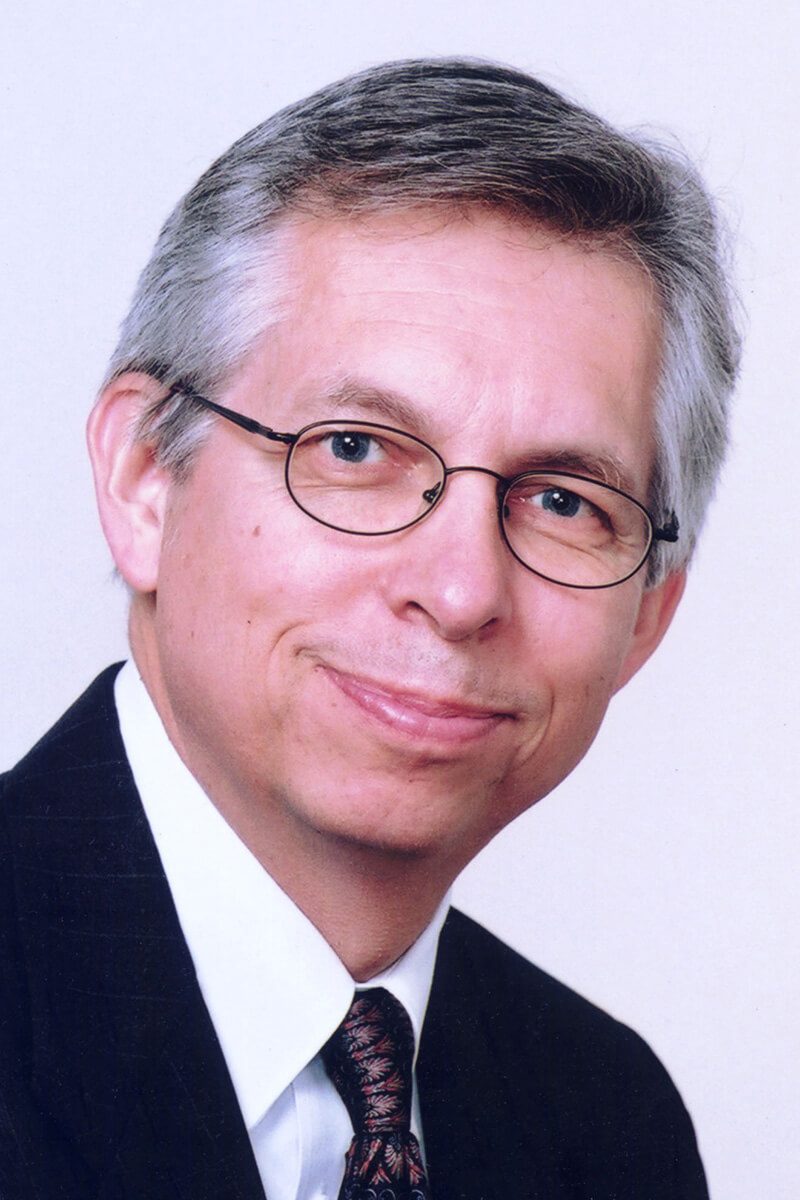Editor’s Note: This is a reprint of a commentary published in 2001, nine days after 9/11. The Rev. Bruce Robbins died on Aug. 3, 2024. To learn more about the Rev. Robbins, please read our obituary.

Commentaries
I have been surprised at some responses to a recent UMNS story in which I said that Islam, a great living faith tradition of this world, is growing faster than any other with more than a billion adherents.
Some objected to my comments by pointing to Islam's holy book, the Koran, as a book of "hate and evil." These reactions reflect widespread misunderstanding that can have terrible consequences upon the needed relationships between Christians and Muslims in the United States. Such points of view may underlie instances of violence carried out in recent days against Muslims, Middle Easterners, Arabs and so many others. Even a friend from India told me how he feared for his wife and children.
Imagine if someone decided to portray Christianity as a religion of hate and violence. Do you think he or she would have trouble using the Bible to prove that it was so? If the quotations were exact from the Bible, many who don't know Christianity would believe it.
Were I to try to characterize Christianity in that hateful way, I might start with the words of Jesus, "I have not come to bring peace but a sword" (Matt 10:34). Then I might turn to one of the countless Old Testament passages that speaks graphically of violence against the enemies of God. Of course, those "enemies" would be the persons opposed to us and our God.
Any one of us who knows the Bible could portray an awful picture and leave out the overwhelming message of love and reconciliation that is at the heartof the Gospel. That portrayal would bear false witness to the life and faith of Christians who seek to proclaim a new way of life to all humanity.
Our communities across the United States have changed dramatically in recent years. At one time, we assumed that nearly everyone was Christian, especially in rural communities. Our tolerance was uneven. Synagogues were sometimes attacked by misguided and hateful people.
Today, Christians are still predominant, but there are Jews, Hindus, Muslims and Buddhists in nearly every community. As staff executive of the United Methodist Commission on Christian Unity and Interreligious Concerns, I recognize that we need to provide assistance and clearer guidelines for our relationships with other faith communities, especially in times of trial like the present.
Here are some suggestions of where to begin:
1. Do not bear false witness against your neighbor. Today, the test case is the Muslim. In response to the bloody attack against civilians in the United States, one prominent Muslim leader said the following: "Our hearts bleed for the attacks that have targeted the World Trade Center [WTC], as well as other institutions in the United States." He also said that Islam, a religion of tolerance, holds the human soul in high esteem, and considers the attack against innocent human beings a grave sin. He believes the Koran makes this teaching clear.
2. Do not judge another tradition by its worst practitioners and yours by its best. When many of us think of Islam, we think of fundamentalists in Afghanistan or some other part of the world. When we think of Christianity, we hold up our saints. Without dishonoring Christianity, we can recognize that our own religion has been used to further hate and violence. Many things done in the name of Christianity were neither faithful nor Christian. Islam is no more about attacking the World Trade Center than Christianity is about bombing abortion clinics. Can we remember that the horrendous acts done in New York by people calling themselves "Muslim" do not reflect that tradition and are condemned by it?
3. Remember that Jesus' teaching calls us to a "ministry of reconciliation" (2 Corinthians 5:18). The call to us goes beyond an "eye for an eye." It even goes beyond toleration and asks us to search for explanation and understanding of the deepest needs of human persons. We can never ignore injustice, and we should always call people to account for their evil actions. But we can seek to understand the forces that may have caused them to hate so much and to kill. A ministry of reconciliation involves hearing and responding in love to the other, even the other who is an enemy.
4. Establish contact with Muslims and Arab Americans in your community United Methodist congregations could help heal the wounds we all feel by reaching out and talking with those persons being targeted by the anger resulting from the terrorist attacks. Could your church send a group to a mosque to learn more about Islam and to hear the concerns and hopes of people who practice there? So many Christians do not realize the bonds between Christianity, Judaism and Christianity. We all worship the one and the same God of the Abrahamic tradition yet with different perspectives and understandings.
Through Bible study, preaching and discipleship, United Methodists can join others seeking to live into the new world, changed dramatically by the treacherous acts of Sept. 11, 2001. May we learn enough about one another from different faith communities that we will proclaim the best of one another, even when we don't understand. And may our prayers for compassion and understanding be answered.
The Rev. Bruce Robbins was the former General Secretary of the General Commission of Christian Unity and Interreligious Concerns (GCCUIC). He died on August 3, 2024, at the age of 73.
News media contact: Tim Tanton or Joey Butler at (615) 742-5470 or [email protected]. To read more United Methodist news, subscribe to the free Daily or Weekly Digests.
